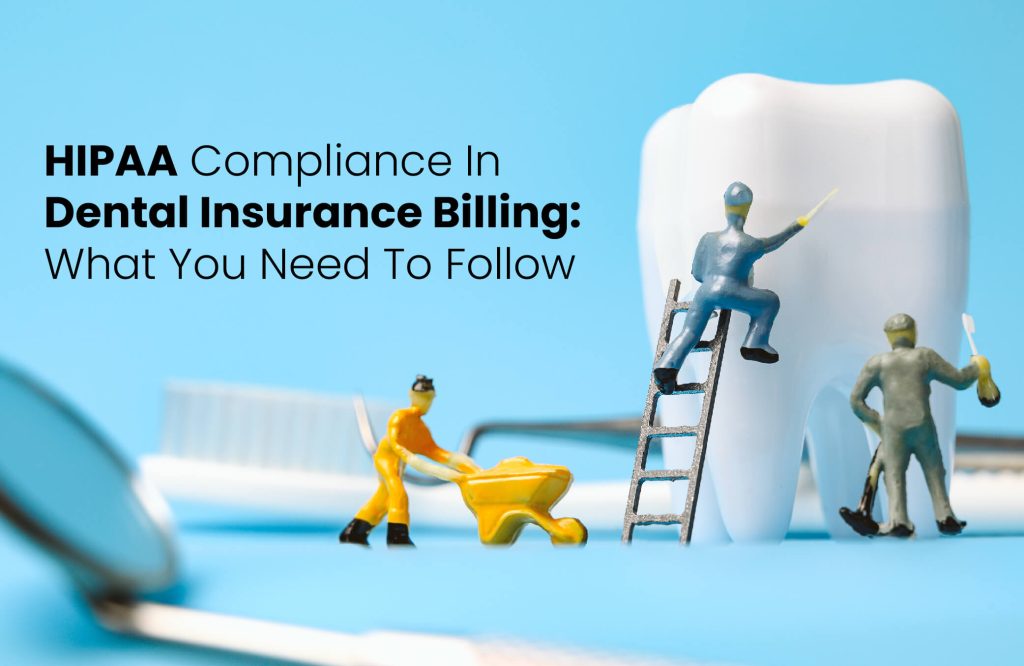Dental insurance billing and collection must enforce the legislation known as HIPAA (The Health Insurance Portability and Accountability Act) to safeguard patient data. This limits exposure from a security perspective and penalizes practices for HIPAA violations. Therefore, it is crucial for a dental practice to partner with a HIPAA-compliant dental billing company to handle patient data with confidentiality and security.
The guidelines are stringent, such as a dental practice becoming a HIPAA-covered entity and having to comply with HIPAA privacy rules to protect patient information in any format.
Dental Practice HIPAA Checklist:
- Create a comprehensive policy for patients and staff related to storing and retrieving personal details.
- Ensure the EHR/PMS system is updated regularly.
- Implement a clean desk policy monthly or bimonthly to remove unwanted patient information.
- Conduct in-house audits using tools available on hipaajournal.com to benefit the practice and create accountability for all staff at all levels.
- Remind staff that non-adherence to compliance can have legal repercussions.
HIPAA Compliance in Dental Insurance Billing & Collection
The privacy, security, and breach rules mandate certain requirements on covered entities and their business associates (outside persons with access to patient data because they perform services for the covered entity). These include:
- Appointing a privacy and security official.
- Conducting a risk assessment of patient information.
- Documenting policies and procedures.
- Creating necessary forms to implement policy effectively.
- Exhibiting a HIPAA-compliant Notice of Privacy Practices (NPP).
- Providing copies of NPP to patients.
- Protecting data integrity by preventing inappropriate access.
- Adhering to HIPAA's minimum necessary standard for the treatment.
- Training staff on the dental practice's privacy policy and documenting training and non-adherence activities.
- Following compliance for business associates under the business associate agreement.
- Creating a Breach Notification Policy and training employees to avoid non-compliance.
- Keeping track of all HIPAA compliance documents for the last six years from their creation or effective date, whichever is later.
Does Outsourcing Disrupt Dental Insurance Billing & Collection?
- Adhering to HIPAA compliance means any covered entity is responsible for HIPAA policies.
- When submitting an insurance claim, the parties involved are accountable for creating, storing, and retrieving patient details.
- Partnering with a third party like Capline Dental Services helps to secure personal details without storing patient data on hardware, implementing security measures to keep everything safe.
- Outsourcing allows the dental billing company to handle sensitive patient information, streamlining the process and leading to improved, consistent cash flow.
- A HIPAA-compliant dental billing company ensures patient data safety through a secured network, allowing dental professionals to focus on providing excellent oral care.
How Does Non-Compliance Affect Dental Insurance Billing & Collection?
- Dental professionals may face monetary fines.
- Fines for violating sensitive information can range from thousands to millions of dollars, depending on the breach's severity.
- HIPAA non-compliance can also impact the dental practice’s reputation and erode patient trust.
